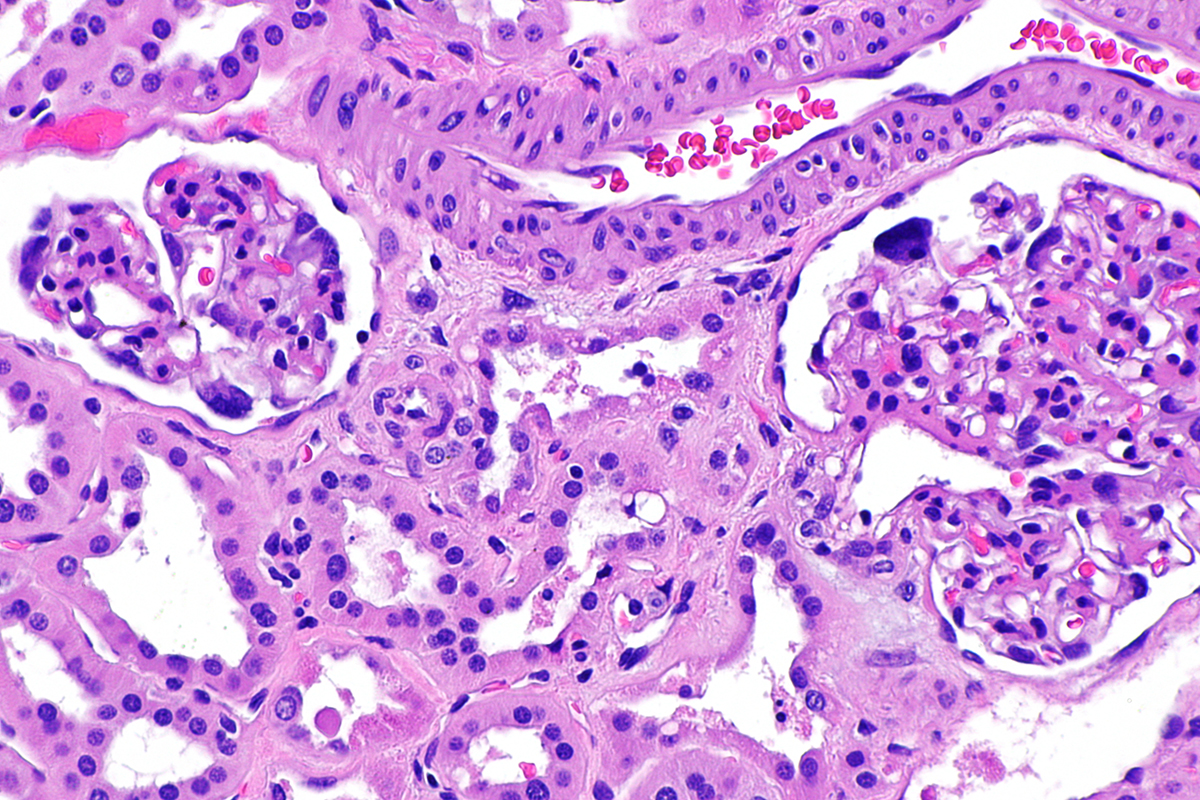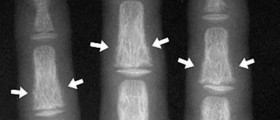
The kidneys are bean-shaped organs and they play an important role in filtering wastes and excess of fluid from the blood via urine. Furthermore, kidneys produce renin, an enzyme in charge of regulation of blood pressure as well as erythropoietin, a glycoprotein hormone necessary for red blood cell production. In case of severe damage to kidneys fluid as well as many waste products cannot be properly eliminated from the body, they accumulate and may cause serious damage to many organs and organ systems.
Chronic renal failure represents a gradual loss of kidney function. In initial stages of chronic renal failure there are usually no or only a few symptoms and signs of the disease. They become clear enough once the function of the kidneys is significantly impaired. The goal of the treatment is to slow the progression of failure and bring the underlying cause of the disease under control. In terminal stage of the disease patients are treated with dialysis (artificial filtering of fluid and waste products) and kidney transplantation.
What Causes Chronic Renal Failure?
There are many different illnesses associated with chronic kidney failure. For example, the condition usually affects patients suffering from diabetes (especially type 1 diabetes). Furthermore, hypertension, especially if it is not controlled, eventually leads to damage of kidney tissue and induce renal failure. There are also some illnesses that affect the very organ and due to structural damage cause kidney failure. Glomerulonephritis is one of them. The condition also affects some patients suffering from autoimmune illnesses such as systemic lupus erythematosus.
Excessive and uncontrollable usage of analgesics is another possible cause of kidney failure. The condition develops as a consequence of untreated urinary stones and may affect patients suffering from sickle cell disease, HIV infection or amyloidosis. Heroin abuse may also be associated with kidney failure and finally, people with family history of kidney failure are at a higher risk of developing the disease.
Clinical Characteristics of Chronic Renal Failure
It is amazing how kidneys can compensate for their abuse for a long period of time. This is a simple explanation why the symptoms and signs develop quite late and there is unnoticeable progression that lasts for a longer period of time before the illness is actually diagnosed.
Because kidneys perform several functions damage to kidney tissue leads to different symptoms and signs. Most patients continue having normal urine output even if they reach advanced stage of the disease. The condition eventually leads to fatigue and general weakness, anemia (lack of erythropoietin) and loss of appetite. Some patients report nausea and vomiting. The skin may become itchy and bruises easily.There is swelling of legs, numbness in feet and hands and puffiness of eyelids. Patients eventually develop high blood pressure and may suffer from chest pain. In case there is an accumulation of fluid in the lungs patients suffer from breathing difficulties as well. Patients also suffer from problems with blood coagulation and there is an obvious lack of sexual interest as well as erectile dysfunction.

















Your thoughts on this
Loading...